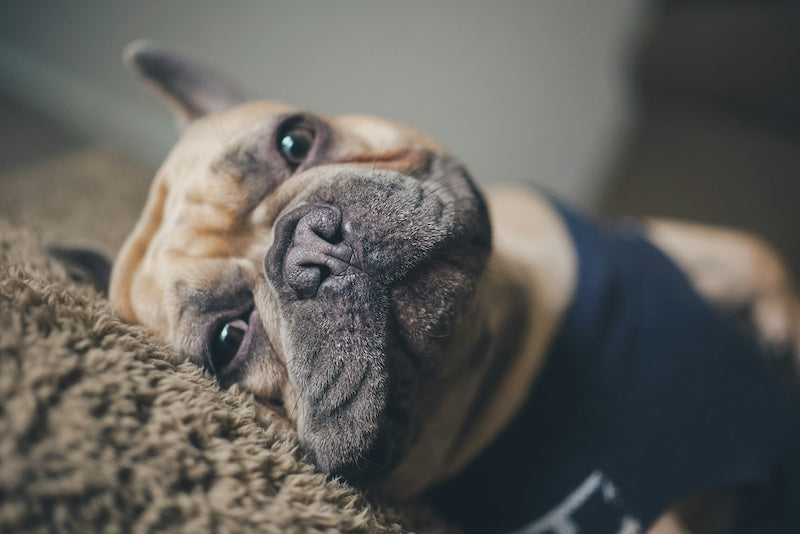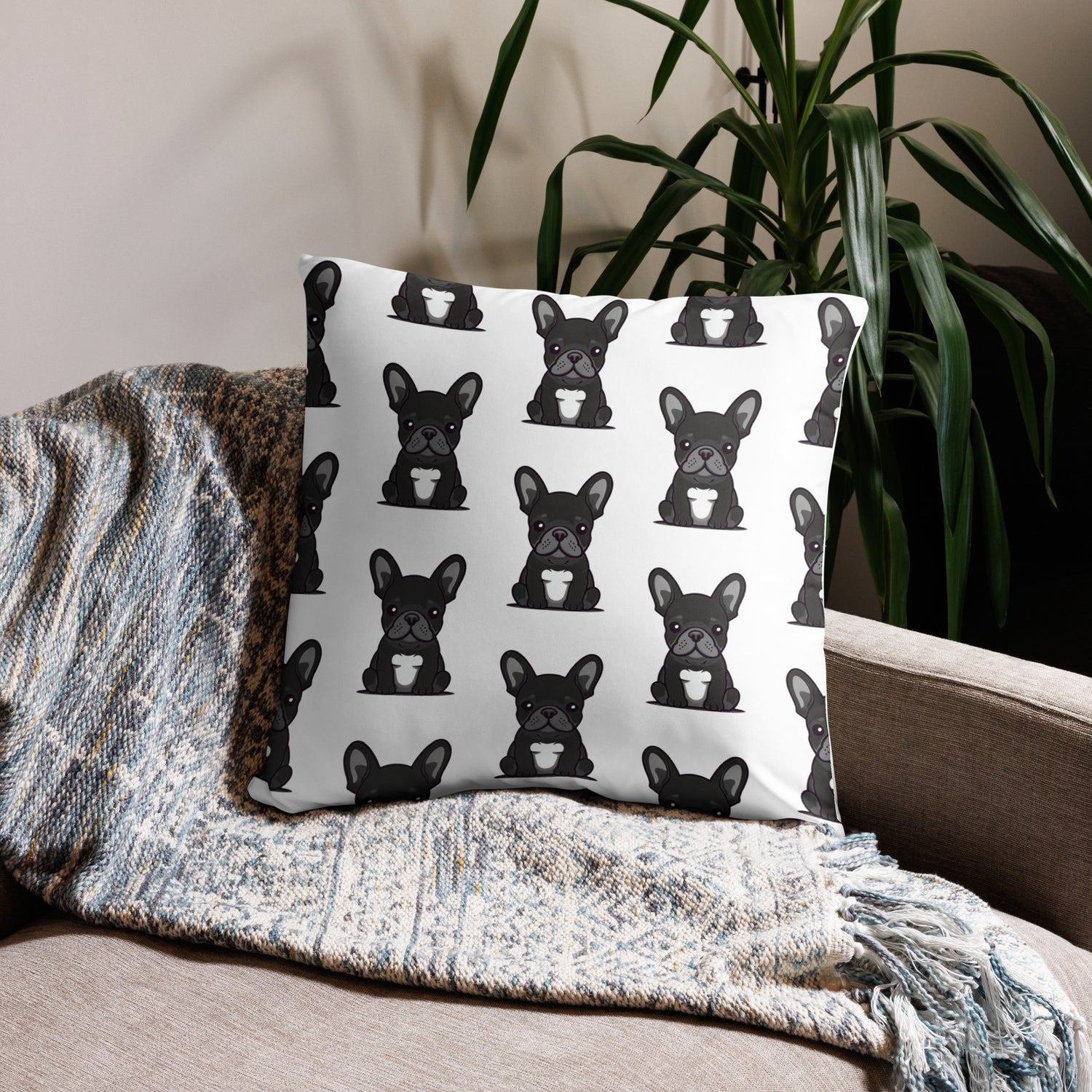The French Bulldog is a much-loved canine companion: its compact size, fun personality, and distinctive appearance make it a dog of choice for many of us. However, this breed has certain characteristics that make it more susceptible to skin problems compared to other breeds.
Origin of skin problems in French Bulldogs
There are certain factors that contribute to making French Bulldogs susceptible to skin problems:
- Brachycephalic syndrome
- Heat and humidity
- Allergies
- Body fold
- Genetic origins
Brachycephalic syndrome
Brachycephalic dog breeds are those with a short, flattened muzzle, such as the French Bulldog. This physical trait has a number of health implications, particularly when it comes to their skin. The reduced facial space means that skin folds are often numerous, which can lead to irritation and infection if not taken care of properly.
Heat and humidity
The French Bulldog sometimes suffers from poor heat regulation, which can cause skin problems when the animal is exposed to excess heat or humidity. This can aggravate pre-existing skin conditions and cause them to multiply in stressful situations for the skin.
Allergies
French Bulldogs are also prone to developing allergies - particularly food or environmental - which can lead to itching, irritation and redness of the skin and coat. It is essential to consult your veterinarian if you notice these symptoms.
Body fold
Since this breed is prone to obesity, the folds on the belly and hind legs can also lead to fungal and bacterial infections on the skin due to moisture build-up. To combat this problem, make sure your Bulldog maintains a healthy weight and gets enough exercise.
Genetic origins
Finally, the genetic selection of this species has resulted in some weaknesses in the skin, such as hair follicle hypoplasia , which causes less hair growth and increased sensitivity to dermatological problems.
Different Skin Problems in French Bulldogs
Beyond these predisposing factors, there are various common skin conditions in the French Bulldog:
- Dermatitis
- Ear infection
- Interdigital pyoderma
- Canine acne
- Atopic dermatitis
Dermatitis
It may be contact or allergic dermatitis that manifests itself with redness, itching and thinning fur. A veterinary consultation is recommended to determine the underlying cause and prescribe appropriate treatment.
Ear infection
The French Bulldog's floppy ears are a common cause of infections, including external ear infections, caused by bacteria and yeast. Symptoms such as redness, discharge, bad odor, and pain should be monitored.
Interdigital pyoderma
This bacterial infection, usually caused by staph, mainly affects the spaces between the toes and causes painful red bumps on hot, swollen skin. The veterinarian will identify the bacterial strain responsible in order to prescribe an appropriate antibiotic.
Canine acne
Occurring mainly in young dogs, canine acne is characterized by small pimples and comedones, usually located on the muzzle, forehead, lips or under the chin. Hormonal and immune factors are often involved.
Atopic dermatitis
It is a chronic inflammation of the skin in reaction to an environmental allergy (pollen, mites, etc.). Atopic dermatitis is characterized by red patches, itching and intensive scratching which can lead to secondary infections.
How to prevent and treat skin problems in French Bulldogs?
Here are some tips to minimize risks and effectively treat skin conditions:
- Maintain good hygiene, by regularly cleaning the folds of the face and body as well as the ears.
- Choose a balanced diet, adapted to your dog's needs and allergy tolerances.
- Limit exposure to environmental allergens that may cause skin reactions.
- Monitor the skin and coat regularly, and consult a veterinarian as soon as any unusual or alarming signs appear.
In short, although it is subject to several skin problems, the French Bulldog remains an endearing companion with whom it is possible to share a happy life, provided that particular attention is paid to its dermatological health.







